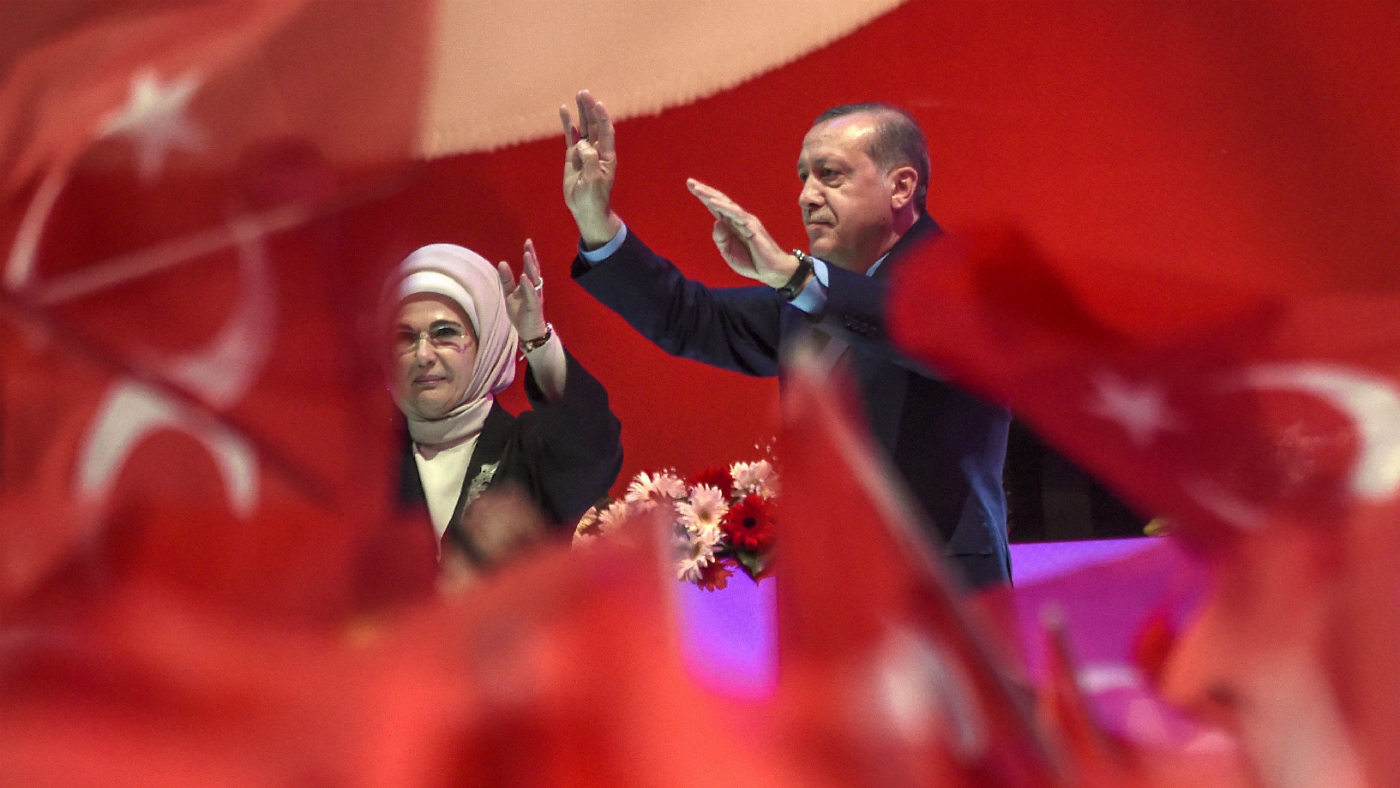Turkey is divided over 'radical' referendum
Victory at the polls would give Erdogan dictatorial powers, says opposition

A free daily email with the biggest news stories of the day – and the best features from TheWeek.com
You are now subscribed
Your newsletter sign-up was successful
With only days to go before Turkey votes on a major constitutional shake-up that would give President Recep Tayyip Erdogan extensive new powers, the polls are on a "knife edge", says The Independent.
A few percentage points will decide the outcome of Sunday's vote, with the most recent polls showing the Yes campaign on 51 or 52 per cent.
One recent study of 17 national television channels showed that 90 per cent of campaign coverage was given to Yes supporters, The Economist reports.
The Week
Escape your echo chamber. Get the facts behind the news, plus analysis from multiple perspectives.

Sign up for The Week's Free Newsletters
From our morning news briefing to a weekly Good News Newsletter, get the best of The Week delivered directly to your inbox.
From our morning news briefing to a weekly Good News Newsletter, get the best of The Week delivered directly to your inbox.
If Turkey votes Yes in the referendum, the role of president – currently a ceremonial head of state – would be endowed with a host of executive powers, similar to the office of president in France and the US.
Crucially, if the reforms are approved, the country's electoral calendar will be reset. This would allow Erdogan, who is currently halfway through his first term as president, to circumvent the country's current two-term presidential limit and run for two more five-year terms until 2029.
Erdogan and his supporters argue that the new constitution would give Turkey the strong leader it needs to tackle internal violence, corruption and a sharp economic downturn.
However, the No campaign, led by the opposition Republican People's party, say the reforms undermine Parliament and effectively make Erdogan a dictator.
A free daily email with the biggest news stories of the day – and the best features from TheWeek.com
The Council of Europe has called the proposed changes "a dangerous step backwards" for a country that was once proof that secular democracy could thrive in a majority-Muslim state.
A spate of deadly terror attacks by both Kurdish separatists and Islamists, as well as chaos over the Syrian border, has seen Turkey drift away from Western liberalism in recent years.
The failed coup by army officers last July has pushed this tendency into overdrive, bringing out "an increasingly authoritarian streak" in Erdogan, says CNN.
Under the guise of restoring stability, Erdogan's government has cracked down on civil liberties and arrested almost 50,000 activists, journalists and other supposed subversives.
Erdogan's response to the failed coup "has gone far beyond what is reasonable", says the Economist, and the referendum is the final straw – a Yes vote would effectively make him a "21st-century sultan".
-
 How the FCC’s ‘equal time’ rule works
How the FCC’s ‘equal time’ rule worksIn the Spotlight The law is at the heart of the Colbert-CBS conflict
-
 What is the endgame in the DHS shutdown?
What is the endgame in the DHS shutdown?Today’s Big Question Democrats want to rein in ICE’s immigration crackdown
-
 ‘Poor time management isn’t just an inconvenience’
‘Poor time management isn’t just an inconvenience’Instant Opinion Opinion, comment and editorials of the day
-
 Epstein files topple law CEO, roil UK government
Epstein files topple law CEO, roil UK governmentSpeed Read Peter Mandelson, Britain’s former ambassador to the US, is caught up in the scandal
-
 Iran and US prepare to meet after skirmishes
Iran and US prepare to meet after skirmishesSpeed Read The incident comes amid heightened tensions in the Middle East
-
 Israel retrieves final hostage’s body from Gaza
Israel retrieves final hostage’s body from GazaSpeed Read The 24-year-old police officer was killed during the initial Hamas attack
-
 China’s Xi targets top general in growing purge
China’s Xi targets top general in growing purgeSpeed Read Zhang Youxia is being investigated over ‘grave violations’ of the law
-
 Panama and Canada are negotiating over a crucial copper mine
Panama and Canada are negotiating over a crucial copper mineIn the Spotlight Panama is set to make a final decision on the mine this summer
-
 Why Greenland’s natural resources are nearly impossible to mine
Why Greenland’s natural resources are nearly impossible to mineThe Explainer The country’s natural landscape makes the task extremely difficult
-
 Iran cuts internet as protests escalate
Iran cuts internet as protests escalateSpeed Reada Government buildings across the country have been set on fire
-
 US nabs ‘shadow’ tanker claimed by Russia
US nabs ‘shadow’ tanker claimed by RussiaSpeed Read The ship was one of two vessels seized by the US military